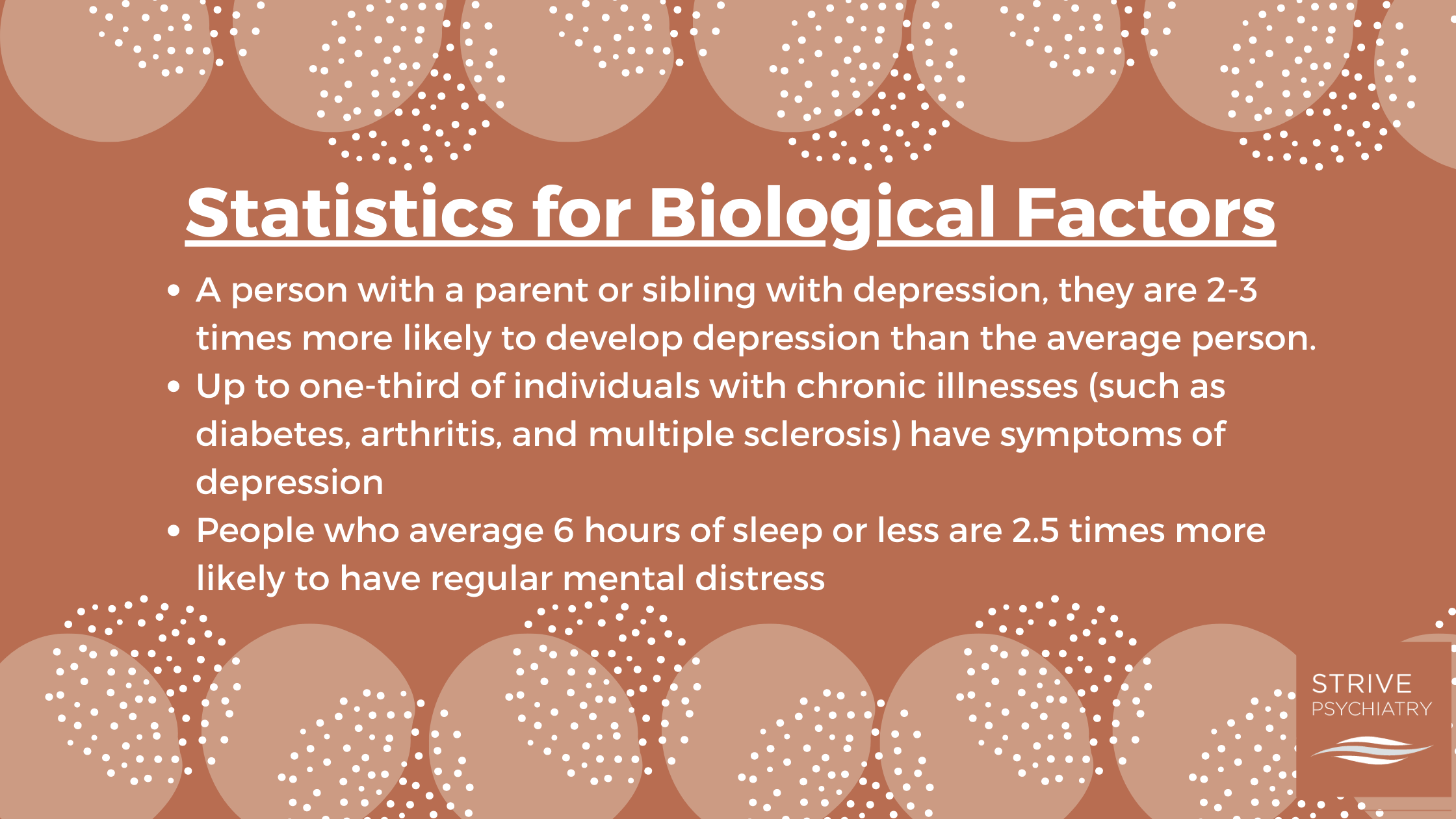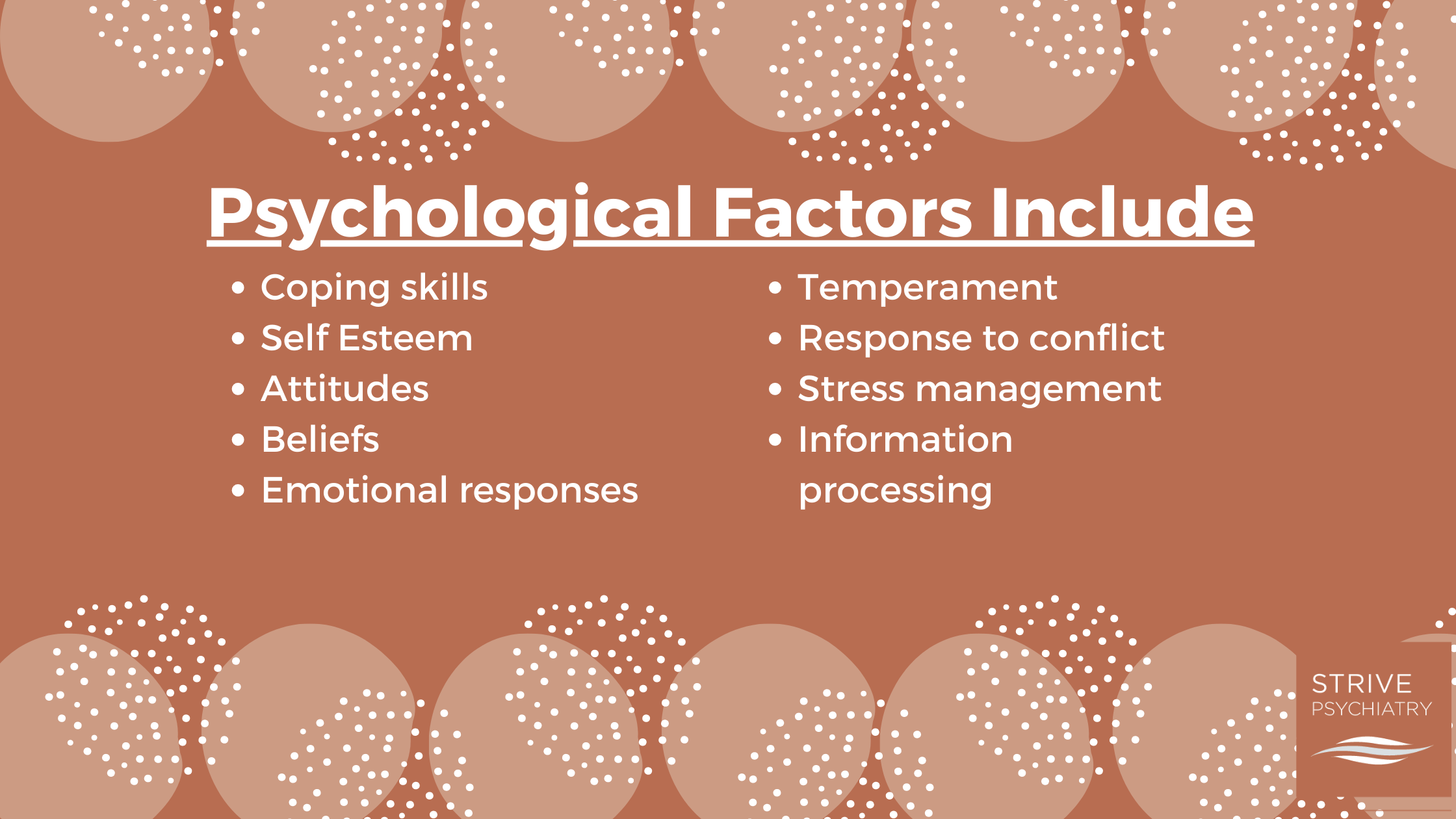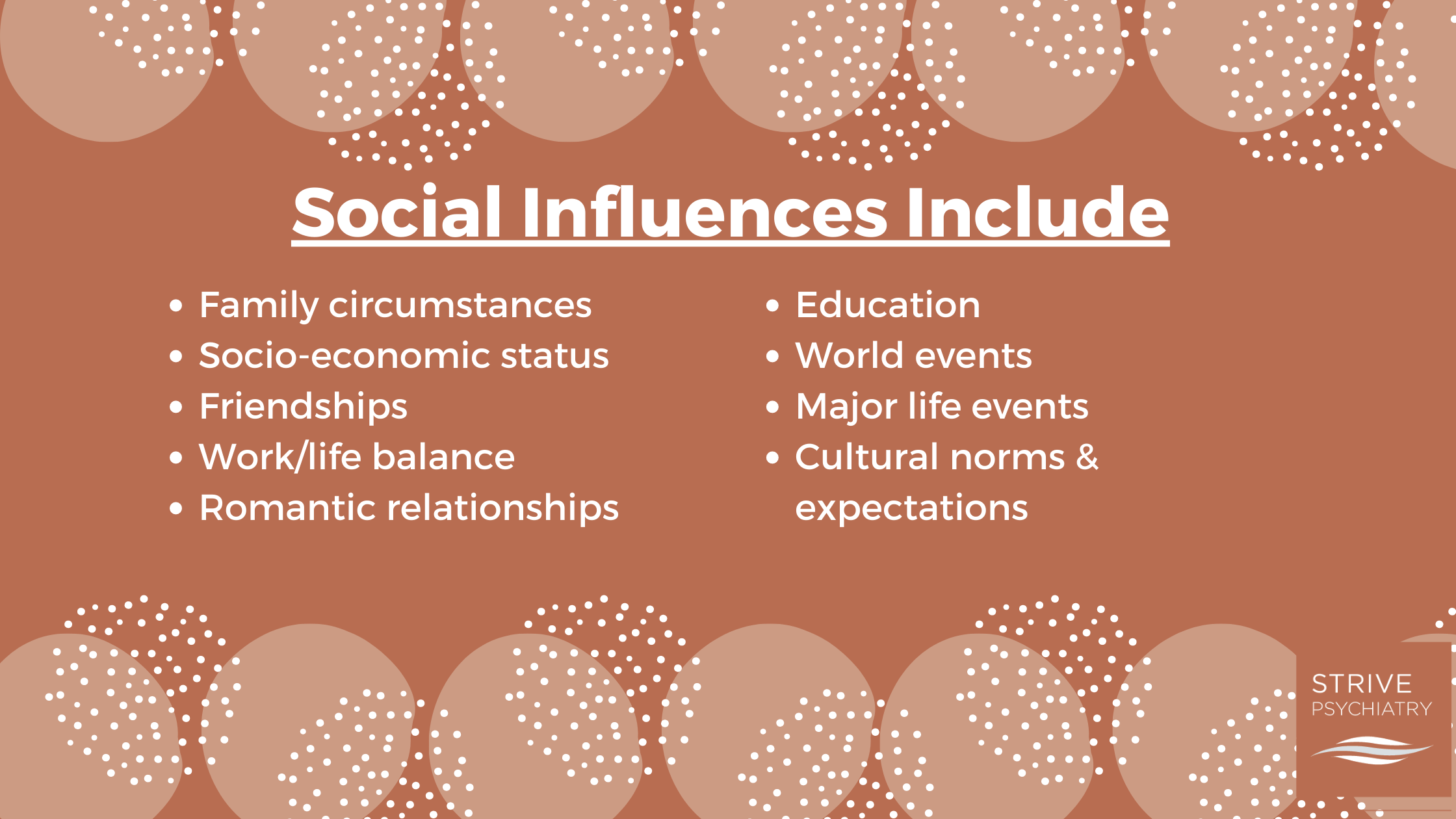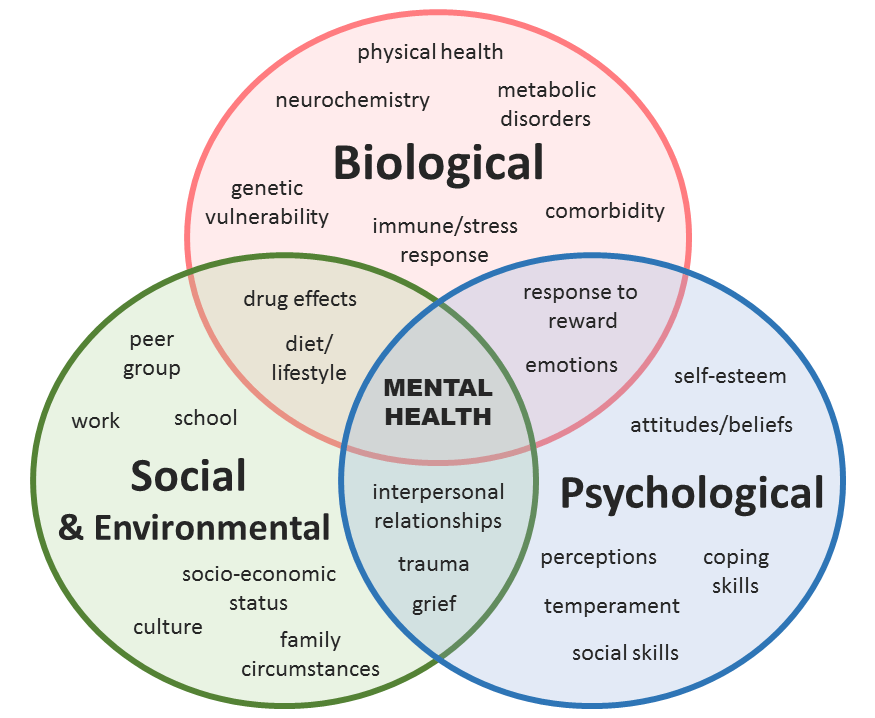What Causes Mental Illness?
In the world of mental health, the question on most people’s minds is “how did this happen? What caused this?” Many point to diet and exercise issues as the sole cause, while others focus on how mental illness runs in their family. In reality, mental illnesses are multifaceted and more complicated than one single factor. Mental illnesses have biological, psychological, and social factors that mix in unique ways to influence a person’s mental health. If a psychiatrist wants to treat a mental illness, it is important that they have an approach that addresses all three of these factors and any pressure points a patient may be feeling in a particular area. In this blog post, we will cover each one of these unique elements and what a psychiatrist considers in each category to create a treatment plan. Read on to find out what causes mental illness.
Factor 1: Biology
Your biology is a key element in developing, managing, and healing from a mental illness. This includes how physically healthy you are, your genetics, your metabolism, and any health conditions a person has. Check out the statistics for how biological factors influence mental health

How does a psychiatrist consider this factor?
When someone visits a psychiatrist with a mental health condition, they ask about these biological factors. While prescribing medication can help with the biological element, psychiatrists also ask about healthy habits that you have. If there is a health problem, such as a diet heavy in processed foods, lack of exercise, or inadequate sleep, a psychiatrist would probably suggest some changes.
A healthy mind is supported by a healthy body. While a healthy diet, exercise, and sleep routine may not “cure” a mental illness, it certainly can help to alleviate some symptoms. It could be beneficial for an individual to get a genetic test to see what medications work best within their body. A genetic test looks to identify how your body metabolizes medication. This information is useful for a doctor in determining the medication type and dose to prescribe.
Many social and psychological factors play into biology. For example, family history is often considered both a social and biological factor that influences mental health. This further shows that mental health is multifaceted and complex.
Factor 2: Psychology
Psychology plays a major role in whether or not a person develops a mental illness. Certain thought patterns or habits could be healthy while others could be unhealthy. Take a look at what factors make up the psychological elements of the brain.

How does a psychiatrist consider this factor?
Psychological health is much like biological health in the sense that building healthy habits and challenging unhealthy ones can improve overall mental health. A psychiatrist will look at behaviors and habits to see if maladaptive psychology is at play, address the issue, and create a treatment plan that works for the patient. One example of maladaptive psychology is the habit of catastrophizing. Catastrophizing is a habit of consistently assuming the worst possible outcome will occur in any specific situation. This can lead to chronic anxiety or depression. It takes work and time to reset unhealthy patterns and a psychiatrist can help identify and build healthy psychological skills.
Factor 3: Social Elements
The last element in a Bio/Psycho/Social model of mental health is the social factor. Social influences play a large part in maintaining mental health. Take a look to see what things comprise the social elements of mental health.

How does a psychiatrist consider this factor?
When a patient meets with a psychiatrist the doctor will listen closely to their experience. What things within the social sphere could be contributing to their mental health. The treatment plan the doctor sets could be aiming to change things by setting goals, establishing boundaries, or getting to the bottom of what a patient loves to do. Some of the best clues to improving mental health are found in the things people love to do but haven’t done in a long time.
As mentioned previously in this post, oftentimes family history is considered both a biological and social factor in mental health. In fact, a good indicator that medication will work for a person is if it works for their family. Knowing this information can help a psychiatrist make an accurate diagnosis and find a medication that works best for a patient.
The Overlap

Image courtesy of Open Learn
Like many things in the world of mental health, there are no hard lines with how each person’s mind functions. There is overlap in each of these three fields and each portion contributes to a person’s overall mental health and wellness. To answer the burning question, “What causes mental illness” it is when something within biology, psychology, or a person’s social essence is out of balance. Everyone experiences mental illness differently, and a combination of factors goes into developing a mental illness. The take-home point is that every single person’s mental health is dependent on factors and experiences that are different from everyone else’s. What could send someone into a depressive state may not cause an issue for another person.
The best thing to do if a friend or family member has a mental illness is to treat them with kindness and compassion. Encourage others to seek mental help if they are experiencing a mental illness, and support their care. Doing so will help them feel heard, accepted, and encouraged.
Sources
https://med.stanford.edu/depressiongenetics/mddandgenes.html
https://my.clevelandclinic.org/health/articles/9288-chronic-illness-and-depression
